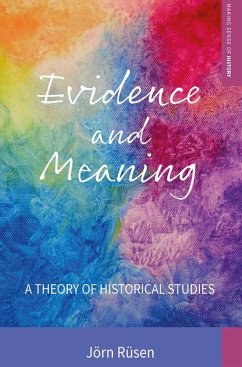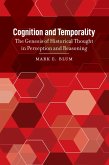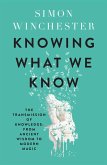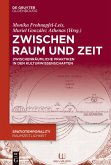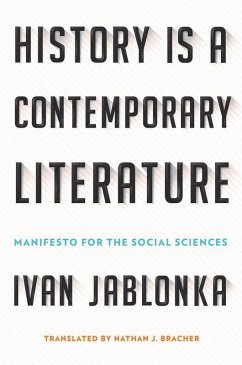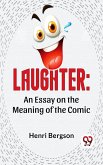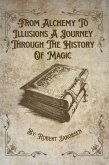29,95 €
29,95 €
inkl. MwSt.
Sofort per Download lieferbar

15 °P sammeln
29,95 €
Als Download kaufen

29,95 €
inkl. MwSt.
Sofort per Download lieferbar

15 °P sammeln
Jetzt verschenken
Alle Infos zum eBook verschenken
29,95 €
inkl. MwSt.
Sofort per Download lieferbar
Alle Infos zum eBook verschenken

15 °P sammeln
- Format: ePub
- Merkliste
- Auf die Merkliste
- Bewerten Bewerten
- Teilen
- Produkt teilen
- Produkterinnerung
- Produkterinnerung

Bitte loggen Sie sich zunächst in Ihr Kundenkonto ein oder registrieren Sie sich bei
bücher.de, um das eBook-Abo tolino select nutzen zu können.
Hier können Sie sich einloggen
Hier können Sie sich einloggen
Sie sind bereits eingeloggt. Klicken Sie auf 2. tolino select Abo, um fortzufahren.

Bitte loggen Sie sich zunächst in Ihr Kundenkonto ein oder registrieren Sie sich bei bücher.de, um das eBook-Abo tolino select nutzen zu können.
As one of the premier historical thinkers of his generation, Jörn Rüsen has made enormous contributions to the methods and theoretical framework of history as it is practiced today. In Evidence and Meaning , Rüsen surveys the seismic changes that have shaped the historical profession over the last half-century, while offering a clear, economical account of his theory of history. To traditional historiography Rüsen brings theoretical insights from philosophy, narrative theory, cultural studies, and the social sciences, developing an intricate but robust model of "historical thinking" as both a…mehr
- Geräte: eReader
- mit Kopierschutz
- eBook Hilfe
- Größe: 2.87MB
Andere Kunden interessierten sich auch für
- -10%11
![Cognition and Temporality (eBook, ePUB) Cognition and Temporality (eBook, ePUB)]() Mark E. BlumCognition and Temporality (eBook, ePUB)91,95 €
Mark E. BlumCognition and Temporality (eBook, ePUB)91,95 € ![Knowing What We Know (eBook, ePUB) Knowing What We Know (eBook, ePUB)]() Simon WinchesterKnowing What We Know (eBook, ePUB)7,79 €
Simon WinchesterKnowing What We Know (eBook, ePUB)7,79 €![Zwischen Raum und Zeit (eBook, ePUB) Zwischen Raum und Zeit (eBook, ePUB)]() Zwischen Raum und Zeit (eBook, ePUB)79,95 €
Zwischen Raum und Zeit (eBook, ePUB)79,95 €![Cassirer (eBook, ePUB) Cassirer (eBook, ePUB)]() Samantha MatherneCassirer (eBook, ePUB)23,95 €
Samantha MatherneCassirer (eBook, ePUB)23,95 €![History Is a Contemporary Literature (eBook, ePUB) History Is a Contemporary Literature (eBook, ePUB)]() Ivan JablonkaHistory Is a Contemporary Literature (eBook, ePUB)17,95 €
Ivan JablonkaHistory Is a Contemporary Literature (eBook, ePUB)17,95 €![Laughter: An Essay On The Meaning Of The Comic (eBook, ePUB) Laughter: An Essay On The Meaning Of The Comic (eBook, ePUB)]() Henri BergsonLaughter: An Essay On The Meaning Of The Comic (eBook, ePUB)1,99 €
Henri BergsonLaughter: An Essay On The Meaning Of The Comic (eBook, ePUB)1,99 €![From Alchemy To Illusions A Journey Through The History Of Magic (eBook, ePUB) From Alchemy To Illusions A Journey Through The History Of Magic (eBook, ePUB)]() Robert JakobsenFrom Alchemy To Illusions A Journey Through The History Of Magic (eBook, ePUB)3,99 €
Robert JakobsenFrom Alchemy To Illusions A Journey Through The History Of Magic (eBook, ePUB)3,99 €-
-
-
As one of the premier historical thinkers of his generation, Jörn Rüsen has made enormous contributions to the methods and theoretical framework of history as it is practiced today. In Evidence and Meaning, Rüsen surveys the seismic changes that have shaped the historical profession over the last half-century, while offering a clear, economical account of his theory of history. To traditional historiography Rüsen brings theoretical insights from philosophy, narrative theory, cultural studies, and the social sciences, developing an intricate but robust model of "historical thinking" as both a cognitive discipline and a cultural practice-one that is susceptible neither to naïve empiricism nor radical relativism.
Dieser Download kann aus rechtlichen Gründen nur mit Rechnungsadresse in A, D ausgeliefert werden.
Produktdetails
- Produktdetails
- Verlag: Berghahn Books
- Seitenzahl: 266
- Erscheinungstermin: 1. Mai 2017
- Englisch
- ISBN-13: 9781785335396
- Artikelnr.: 56822144
- Verlag: Berghahn Books
- Seitenzahl: 266
- Erscheinungstermin: 1. Mai 2017
- Englisch
- ISBN-13: 9781785335396
- Artikelnr.: 56822144
- Herstellerkennzeichnung Die Herstellerinformationen sind derzeit nicht verfügbar.
Jörn Rüsen is Professor Emeritus of General History and Historical Culture at Witten/Herdecke University. He has also taught at the Universities of Berlin, Bochum and Bielefeld and was Director of the Institute for Advanced Study at Essen. His books and articles have been translated into twenty different languages. Dr. Rüsen is the Founding Editor of the Berghahn Books series Making Sense of History.
Preface
Introduction
Chapter 1. What is Metahistory?
Chapter 2. The Foundation of Historical Thinking
1. How Does History come into the World?
2. The Elemental Forms in the Forming of Historical Meaning
3. An Aside: Contingency and Freedom
4. Experiencing Crisis and the Forming of Historical Meaning: A Typology
Chapter 3. History as Academic Discipline
1. Historical Meaning and Academic Study
2. Method and Truth
3. The Criteria for Truth in Historical Thinking
4. Academia: Intercultural Validity or Culturally Specific Relativity?
5. Disciplinary Matrix I: The Five Factor System
6. Disciplinary Matrix II: The Schema of Five Practices
7. Disciplinary Matrix III: The Three Levels of Forming Historical
Meaning
Chapter 4. A Systematic Approach: Categories, Theories, Concepts
1. What is the Issue?
2. 'History' as Concept of Meaning: A Look at Content and Form
3. Teleology and Reconstruction
4. A Problem Unresolved: The Natural World
5. Means of Access I: The Categorical Dimensions of the Historical
6. Means of Access II: The Realm of Experience Revealed
7. Means of Access III: The Realm of Interpretation Revealed
8. Means of Access IV: The Realm of Orientation Revealed
9. Interpretation in Context: Historical Theories
10. Comprehending the Matter: Historical Concepts
11. What is Historical Explanation?
Chapter 5. Methodology: The Rules of the Historical Method
1. The Methodological Character of Historical Knowledge
2. The Unity of the Historical Method
3. Heuristrics
4. Criticism
5. Interpretation
6. From Interpretation to Representation
Chapter 6. Topics: How We Write History
1. The Waywardness of Writing
2. Imagination, Fiction, Experience
3. Orders of Historiographical Representation: The Range of
Possibilities
4. Typology of Historical Narrative I: Droysen, Nietzsche, White
5. Typology of Historical Narrative II: Classifying the Formation of
Historical Meaning into Four Types
6. Typology of Historical Narrative III: Meaning and Rationality
Chapter 7. The Basis of Historical Culture
1. Historical Culture as Societal Practice
2. Historical Consciousness and Memory
3. Five Dimensions of Historical Culture
4. Orientation and Criticism: The Purpose of Historical Studies
5. The Role of Value Freedom
Chapter 8. Practical History: Learning, Understanding, Humanity
1. The Theoretical Foundation of History Didactics
2. Standards of Historical Judgement: Understanding and Morality
3. Politics of Memory and Historical Identity
4. Overcoming Ethnocentrism through Historical Humanism
Final Reflections: Finding Reason Between Meaning and Meaninglessness
1. Meaning and Meaninglessness
2. Once Again: The Limitations of Science
Bibliography
Index
Introduction
Chapter 1. What is Metahistory?
Chapter 2. The Foundation of Historical Thinking
1. How Does History come into the World?
2. The Elemental Forms in the Forming of Historical Meaning
3. An Aside: Contingency and Freedom
4. Experiencing Crisis and the Forming of Historical Meaning: A Typology
Chapter 3. History as Academic Discipline
1. Historical Meaning and Academic Study
2. Method and Truth
3. The Criteria for Truth in Historical Thinking
4. Academia: Intercultural Validity or Culturally Specific Relativity?
5. Disciplinary Matrix I: The Five Factor System
6. Disciplinary Matrix II: The Schema of Five Practices
7. Disciplinary Matrix III: The Three Levels of Forming Historical
Meaning
Chapter 4. A Systematic Approach: Categories, Theories, Concepts
1. What is the Issue?
2. 'History' as Concept of Meaning: A Look at Content and Form
3. Teleology and Reconstruction
4. A Problem Unresolved: The Natural World
5. Means of Access I: The Categorical Dimensions of the Historical
6. Means of Access II: The Realm of Experience Revealed
7. Means of Access III: The Realm of Interpretation Revealed
8. Means of Access IV: The Realm of Orientation Revealed
9. Interpretation in Context: Historical Theories
10. Comprehending the Matter: Historical Concepts
11. What is Historical Explanation?
Chapter 5. Methodology: The Rules of the Historical Method
1. The Methodological Character of Historical Knowledge
2. The Unity of the Historical Method
3. Heuristrics
4. Criticism
5. Interpretation
6. From Interpretation to Representation
Chapter 6. Topics: How We Write History
1. The Waywardness of Writing
2. Imagination, Fiction, Experience
3. Orders of Historiographical Representation: The Range of
Possibilities
4. Typology of Historical Narrative I: Droysen, Nietzsche, White
5. Typology of Historical Narrative II: Classifying the Formation of
Historical Meaning into Four Types
6. Typology of Historical Narrative III: Meaning and Rationality
Chapter 7. The Basis of Historical Culture
1. Historical Culture as Societal Practice
2. Historical Consciousness and Memory
3. Five Dimensions of Historical Culture
4. Orientation and Criticism: The Purpose of Historical Studies
5. The Role of Value Freedom
Chapter 8. Practical History: Learning, Understanding, Humanity
1. The Theoretical Foundation of History Didactics
2. Standards of Historical Judgement: Understanding and Morality
3. Politics of Memory and Historical Identity
4. Overcoming Ethnocentrism through Historical Humanism
Final Reflections: Finding Reason Between Meaning and Meaninglessness
1. Meaning and Meaninglessness
2. Once Again: The Limitations of Science
Bibliography
Index
Preface
Introduction
Chapter 1. What is Metahistory?
Chapter 2. The Foundation of Historical Thinking
1. How Does History come into the World?
2. The Elemental Forms in the Forming of Historical Meaning
3. An Aside: Contingency and Freedom
4. Experiencing Crisis and the Forming of Historical Meaning: A Typology
Chapter 3. History as Academic Discipline
1. Historical Meaning and Academic Study
2. Method and Truth
3. The Criteria for Truth in Historical Thinking
4. Academia: Intercultural Validity or Culturally Specific Relativity?
5. Disciplinary Matrix I: The Five Factor System
6. Disciplinary Matrix II: The Schema of Five Practices
7. Disciplinary Matrix III: The Three Levels of Forming Historical
Meaning
Chapter 4. A Systematic Approach: Categories, Theories, Concepts
1. What is the Issue?
2. 'History' as Concept of Meaning: A Look at Content and Form
3. Teleology and Reconstruction
4. A Problem Unresolved: The Natural World
5. Means of Access I: The Categorical Dimensions of the Historical
6. Means of Access II: The Realm of Experience Revealed
7. Means of Access III: The Realm of Interpretation Revealed
8. Means of Access IV: The Realm of Orientation Revealed
9. Interpretation in Context: Historical Theories
10. Comprehending the Matter: Historical Concepts
11. What is Historical Explanation?
Chapter 5. Methodology: The Rules of the Historical Method
1. The Methodological Character of Historical Knowledge
2. The Unity of the Historical Method
3. Heuristrics
4. Criticism
5. Interpretation
6. From Interpretation to Representation
Chapter 6. Topics: How We Write History
1. The Waywardness of Writing
2. Imagination, Fiction, Experience
3. Orders of Historiographical Representation: The Range of
Possibilities
4. Typology of Historical Narrative I: Droysen, Nietzsche, White
5. Typology of Historical Narrative II: Classifying the Formation of
Historical Meaning into Four Types
6. Typology of Historical Narrative III: Meaning and Rationality
Chapter 7. The Basis of Historical Culture
1. Historical Culture as Societal Practice
2. Historical Consciousness and Memory
3. Five Dimensions of Historical Culture
4. Orientation and Criticism: The Purpose of Historical Studies
5. The Role of Value Freedom
Chapter 8. Practical History: Learning, Understanding, Humanity
1. The Theoretical Foundation of History Didactics
2. Standards of Historical Judgement: Understanding and Morality
3. Politics of Memory and Historical Identity
4. Overcoming Ethnocentrism through Historical Humanism
Final Reflections: Finding Reason Between Meaning and Meaninglessness
1. Meaning and Meaninglessness
2. Once Again: The Limitations of Science
Bibliography
Index
Introduction
Chapter 1. What is Metahistory?
Chapter 2. The Foundation of Historical Thinking
1. How Does History come into the World?
2. The Elemental Forms in the Forming of Historical Meaning
3. An Aside: Contingency and Freedom
4. Experiencing Crisis and the Forming of Historical Meaning: A Typology
Chapter 3. History as Academic Discipline
1. Historical Meaning and Academic Study
2. Method and Truth
3. The Criteria for Truth in Historical Thinking
4. Academia: Intercultural Validity or Culturally Specific Relativity?
5. Disciplinary Matrix I: The Five Factor System
6. Disciplinary Matrix II: The Schema of Five Practices
7. Disciplinary Matrix III: The Three Levels of Forming Historical
Meaning
Chapter 4. A Systematic Approach: Categories, Theories, Concepts
1. What is the Issue?
2. 'History' as Concept of Meaning: A Look at Content and Form
3. Teleology and Reconstruction
4. A Problem Unresolved: The Natural World
5. Means of Access I: The Categorical Dimensions of the Historical
6. Means of Access II: The Realm of Experience Revealed
7. Means of Access III: The Realm of Interpretation Revealed
8. Means of Access IV: The Realm of Orientation Revealed
9. Interpretation in Context: Historical Theories
10. Comprehending the Matter: Historical Concepts
11. What is Historical Explanation?
Chapter 5. Methodology: The Rules of the Historical Method
1. The Methodological Character of Historical Knowledge
2. The Unity of the Historical Method
3. Heuristrics
4. Criticism
5. Interpretation
6. From Interpretation to Representation
Chapter 6. Topics: How We Write History
1. The Waywardness of Writing
2. Imagination, Fiction, Experience
3. Orders of Historiographical Representation: The Range of
Possibilities
4. Typology of Historical Narrative I: Droysen, Nietzsche, White
5. Typology of Historical Narrative II: Classifying the Formation of
Historical Meaning into Four Types
6. Typology of Historical Narrative III: Meaning and Rationality
Chapter 7. The Basis of Historical Culture
1. Historical Culture as Societal Practice
2. Historical Consciousness and Memory
3. Five Dimensions of Historical Culture
4. Orientation and Criticism: The Purpose of Historical Studies
5. The Role of Value Freedom
Chapter 8. Practical History: Learning, Understanding, Humanity
1. The Theoretical Foundation of History Didactics
2. Standards of Historical Judgement: Understanding and Morality
3. Politics of Memory and Historical Identity
4. Overcoming Ethnocentrism through Historical Humanism
Final Reflections: Finding Reason Between Meaning and Meaninglessness
1. Meaning and Meaninglessness
2. Once Again: The Limitations of Science
Bibliography
Index
